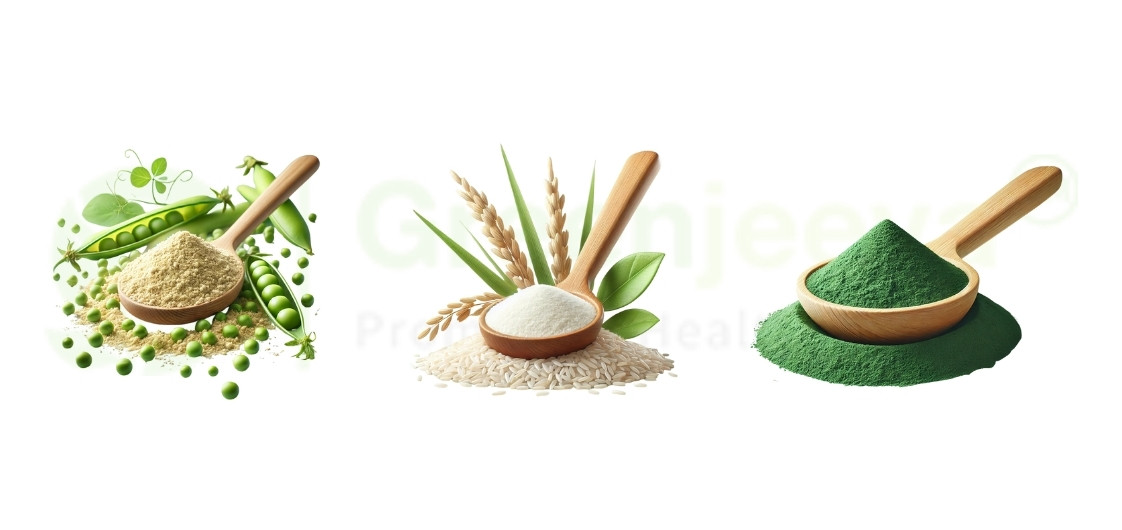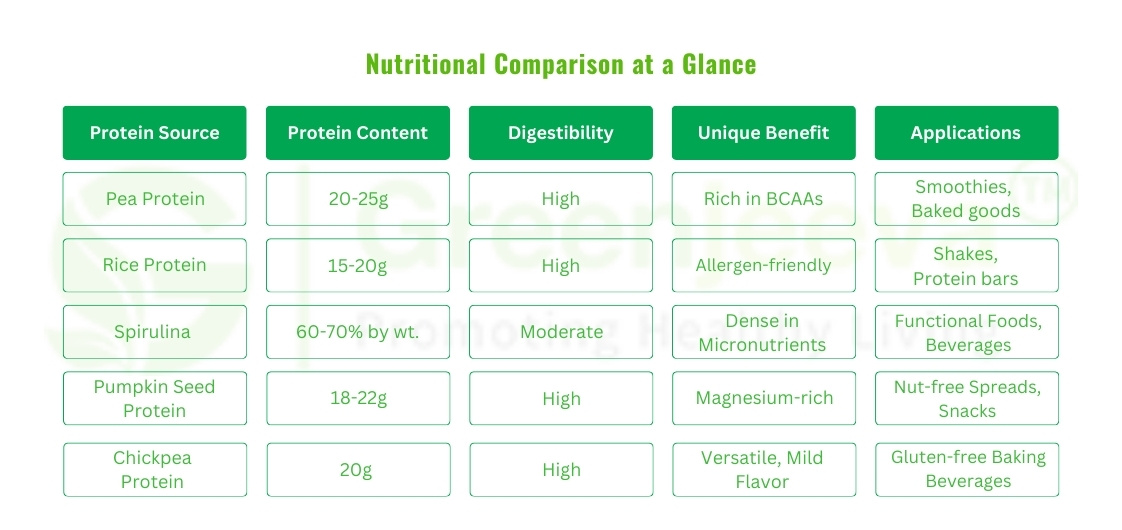
Gone are the days when protein powders meant chalky shakes and limited options. The rise of plant-based protein powders has transformed the nutrition game, offering not just sustenance but also sustainability. From the subtle strength of peas to the nutrient-packed wonders of spirulina, these protein sources are rewriting the rules of wellness and product innovation.
Whether you’re fueling a workout or formulating the next big clean-label product, understanding the unique advantages of plant-based proteins is essential. Let’s compare the leaders in this space and discover why they’re more than just a trend—they’re the future of protein.
Plant-based protein powders offer a clean-label alternative to animal-based options. With increasing demand for transparency and sustainability, they cater to diverse dietary preferences, including vegan, vegetarian, and allergen-conscious consumers. Bulk spirulina suppliers, natural protein wholesalers, and brands alike are riding this wave, ensuring these proteins meet the growing demand for high-quality, eco-friendly products.
Pea protein, derived from yellow peas, has gained popularity for its neutral taste, hypoallergenic properties, and impressive nutritional profile.
Key Highlights:
• Protein Content: Around 20-25 grams per serving.
• Amino Acid Profile: Rich in branched-chain amino acids (BCAAs) essential for muscle recovery and growth.
• Digestibility: Easy on the stomach, making it ideal for sensitive individuals.
• Applications: A versatile option, it works in smoothies, baked goods, and even as a base for plant-based meats.
Did You Know? Pea protein is often used by natural protein wholesalers for clean-label ingredient formulations due to its minimal processing requirements.
Rice protein, especially when extracted from brown rice, is a fantastic option for those seeking allergen-friendly alternatives.
Key Highlights:
• Protein Content: Approximately 15-20 grams per serving.
• Amino Acid Profile: While slightly lower in lysine, it complements pea protein beautifully when combined.
• Digestibility: Highly digestible, making it suitable for those with sensitive digestive systems.
• Applications: Commonly found in protein bars, shakes, and dairy-free products.
Rice protein’s mild flavor profile makes it a favorite among clean-label product developers. For manufacturers, sourcing from bulk spirulina suppliers who offer multi-functional ingredients can enhance the product's nutrient density.

Spirulina, a blue-green algae, is more than just a protein source—it's a nutritional powerhouse. Popular among bulk spirulina suppliers, this superfood boasts a unique array of benefits.
Key Highlights:
• Protein Content: A whopping 60-70% protein by weight, one of the highest among plant-based sources.
• Micronutrients: Packed with B vitamins, iron, and antioxidants.
• Applications: Ideal for smoothies, energy bars, and functional beverages.
Why Spirulina Stands Out: Beyond protein, spirulina’s nutrient profile supports energy levels, detoxification, and overall wellness. Its vibrant color also appeals to the clean-label aesthetic in product design.
As the market expands, other plant-based proteins are making waves:
• Pumpkin Seed Protein: Offers a nutty flavor with added magnesium and zinc.
• Chickpea Protein: Emerging as a versatile and allergen-friendly option.
Combining these proteins allows manufacturers to create blends that balance taste, texture, and nutrition—ideal for health-conscious consumers seeking natural protein wholesalers for clean-label products.
For manufacturers, the versatility of plant-based proteins opens doors across industries:
• Sports Nutrition: High-protein blends like pea and spirulina cater to athletes seeking clean, plant-based options.
• Bakery & Snacks: Rice and chickpea proteins enhance the nutritional profile of gluten-free baked goods.
• Functional Beverages: Spirulina’s vibrant hue and nutrient density make it ideal for smoothie powders and wellness shots.
Bulk spirulina suppliers and natural protein wholesalers play a pivotal role in ensuring these products meet the clean-label demands of the modern market.
Today’s consumers prioritize ingredients they can trust. Plant-based protein powders naturally align with this trend, offering transparency, sustainability, and functionality. As manufacturers, partnering with trusted suppliers ensures the integrity and quality of your formulations.
Whether you're blending a protein smoothie at home or developing the next big plant-based product, the variety of plant-based protein powders ensures there's something for everyone. Pea protein stands out for versatility, rice protein for gentleness, and spirulina for nutrient density. Exploring beyond these staples opens a world of possibilities, empowering manufacturers to craft innovative, clean-label products.
**The Food and Drug Administration has not evaluated these statements. This product is not intended to diagnose, treat, cure, or prevent any disease.**